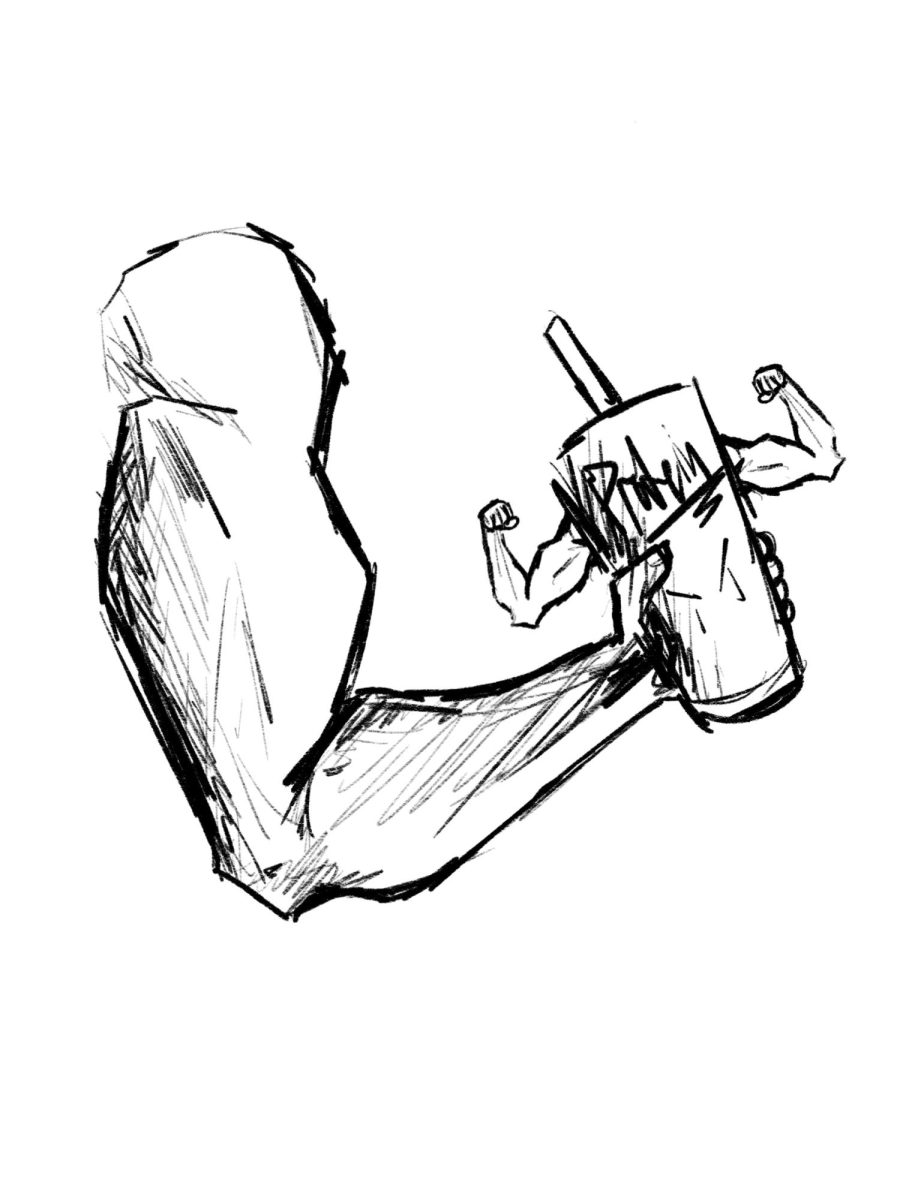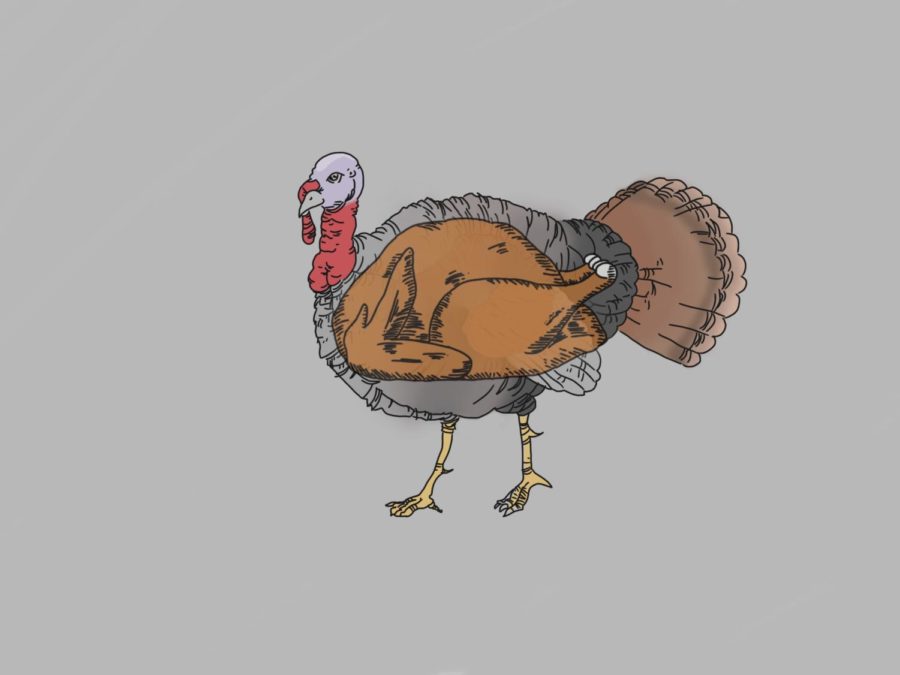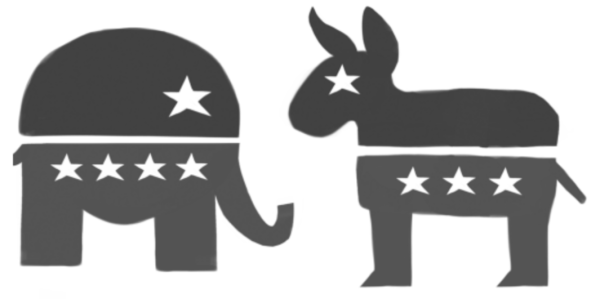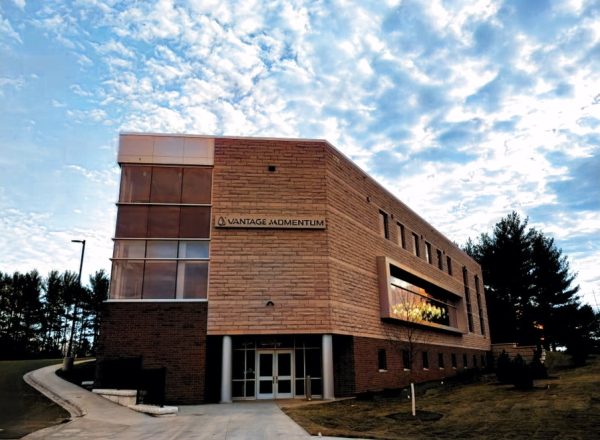The Fowl Truth: Impact of Selective Breeding on Turkeys
November 26, 2018
The turkey is the most iconic symbol of Thanksgiving, arguably one of the most American holidays there is (after the Fourth of July). Benjamin Franklin, in fact, wanted the turkey to be the national bird of the United States instead of the bald eagle, claiming it was a more respectable bird.
Nowadays, however, it could be debated how much respect the animal gets as part of the American livestock industry.
In 1960, the average turkey weighed 17.3 pounds, according to the USDA. In 2014, they weighed an average of 30.6 pounds. John Anderson, a turkey breeder at Ohio State University, says their program has bred turkeys that weigh up to 80 pounds.
At the rate turkeys are going, 40 pounds could be the average size by 2020. But while their large size benefits consumers by giving them more meat per turkey, there are downsides for the birds themselves.
In an analogy made by The Atlantic, if we were to do what has been done to turkeys to humans, it would be like a human reaching full maturity at the age of ten and weighing 300 pounds.
To achieve this massive weight, the commercial turkey industry uses selective breeding. Selective breeding, or artificial selection, is a process where humans choose organisms with characteristics they desire and only breed those animals. Consumer demand influenced breeders to start seeking birds with more breast meat per bird, so breeders chose to selectively breed birds that had the traits they desired.
Terril Bradford, instructor of animal science at the University of Minnesota Crookston, talked about the pros and cons of selectively breeding turkeys in the poultry industry.
“I think the industry has made huge gains but also at the same time kind of neglected what the original bird looked like, too. Ethically, I can see why they have done it for production and dollars, but I don’t necessarily agree that it’s right… there are other ways we can feed the world without totally reconstructing [animals’] bodies,” she said.
Because their breasts are so large, commercial turkeys suffer from spinal issues that make it difficult for them to walk and stand, and they are unable to fly. It also prevents them from naturally reproducing, so they all reproduce through artificial insemination.
Domesticated turkeys are drastically different genetically from their ancestors. If people are interested in consuming turkeys that have not been exceedingly modified, they can purchase a heritage turkey, which is a variety that stays true to its genetic roots. However, they reportedly taste drastically different than turkeys raised for industrial consumption.
“When you bred for one thing specifically, there’s always one thing that loses in that battle and one thing that wins. You might get the bigger breast but you get a wing that’s no longer important. Selective breeding is just looking for specific traits and neglecting others,” Bradford said.
With the increasing movement of many people that want antibiotic-free and all-natural food, breeders could face an ever-growing problem. If they remove antibiotics from the feed of their modified turkeys, weaker turkeys will die off.
Bradford said, “I think [the poultry industry is] going to come to a point where they’re going to have to stop. Because if you’ve bred something negative into your flock or herd regardless of whatever animal it is, at some point it’s going to be so detrimental that you’re going to have to start breed away from that… It’s an industry that’s really screwed up unfortunately.”
There are increasing discussions surrounding the ethics of modifying living animals to such a significant degree, to the point where it affects the animals’ welfare.
Kassi Sisk, ‘19, says, “I don’t think that it is ethical; I believe that harming an animal solely to provide more food for a world that wastes a lot everyday is unethical and unjustly harming an animal. There should be higher standards in place.”
Whether you eat turkey or not for Thanksgiving, or if you even eat turkey in general, it is important to be conscious of where your food comes from. Making educated choices about what you consume dictates market ethics, so it is something to consider.
































